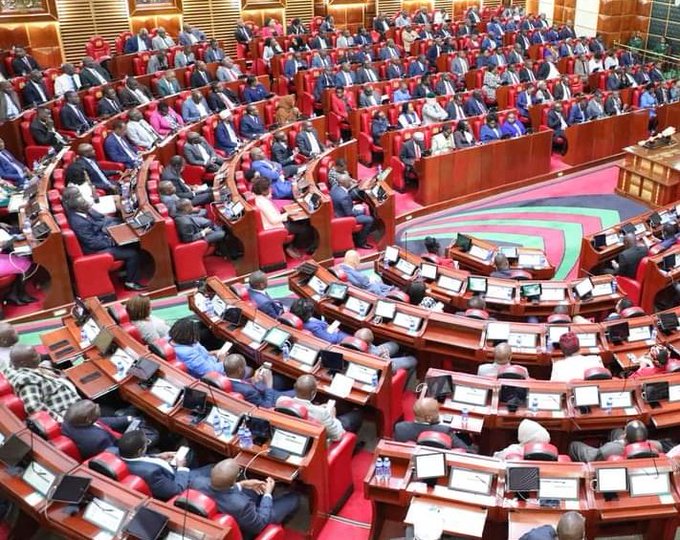

In a significant legislative move, auditors may soon gain access to previously shielded financial records of the National Intelligence Service, the military and other state agencies with confidential budgets.
Lawmakers have rallied behind proposed amendments to the Public Audit Act that aim to enhance scrutiny over government spending, particularly regarding secretive budgets.
The National Assembly Finance Committee chaired by Molo MP Kuria Kimani has recommended the changes as part of the Public Audit (Amendment) Bill, 2024.
The proposal follows a push by Transparency International, which has advocated for the repeal of Section 40 of the Public Audit Act.
This section currently mandates that the Auditor General holds high-level inception meetings with security organs to discuss audit approaches that protect national security information.
Critics argue this requirement has created unnecessary barriers to accountability.
TI contends it undermines the Auditor General’s constitutional mandate to audit state organs and public bodies funded by taxpayer money.
“Introducing a requirement for the Auditor General to seek permission before conducting audits would hinder the office from doing its work,” said Sheila Masinde, head of the integrity watchdog.
The current law also requires audits of security agencies to be vetted by the Ethics and Anti-Corruption Commission, a provision TI argues compromises the independence of the audit process.
“This creates a situation where state organs can influence or obstruct the selection of auditors, undermining the principle of accountability,” the organisation stated.
Lawmakers have echoed these concerns, citing a court ruling that affirmed auditors need no prior approval to conduct audits. The court also ruled as unconstitutional any provision that restricts the Auditor General’s ability to question the viability of government policies, stating, “A statute cannot seek to impose conditions on the Auditor General’s approaches.”
Should the amendments pass, auditors will have the authority to conduct audits of these agencies without prior notice, addressing long-standing concerns about the lack of transparency in government spending.
For example, recent impeachment proceedings involving Deputy President Rigathi Gachagua highlighted issues surrounding the use of confidential expenditures. This year, key government offices, including the presidency and police, were allocated Sh15 billion for such expenses, raising alarms about accountability.
Auditor General Nancy Gathungu has repeatedly raised
concerns about the lack of transparency in the expenditures. In a recent case
involving the National Health Insurance Fund, managers could not account for
Sh2.5 billion classified as “other expenses,” further intensifying calls for
oversight.
Former Auditor General Edward Ouko lamented the challenges faced in accessing the secret votes for auditing. However, the current committee’s recommendations could change this situation significantly.
The proposed amendments also grant the Auditor General the authority to report suspicious transactions directly to anti-graft agencies, bolstering the fight against corruption. If approved, the Auditor General will no longer need to wait for parliamentary review to act on potential fraud or misuse of public resources
“Where the Auditor General establishes that any person,
supplier or company has been involved in fraud or corrupt practice, the Auditor
General may collaborate with other investigative, enforcement, regulatory, and
oversight agencies,” the bill stipulates.
This includes direct communication with the National Police Service and the EACC, allowing for a more streamlined response to corruption allegations. The bill also permits the Auditor General to recommend debarment for firms involved in fraudulent procurement practices.
Transparency International praised these developments stating, “This is a welcome amendment since it promotes collaboration between independent offices and supports addressing corruption-related cases effectively.”

![[PHOTOS] Kindiki inspects works at regional centre in Kwale](/_next/image?url=https%3A%2F%2Fcdn.radioafrica.digital%2Fimage%2F2025%2F04%2Fc68aa00b-39bc-4214-bafe-80e8e38b1e60.jpg&w=3840&q=100)









